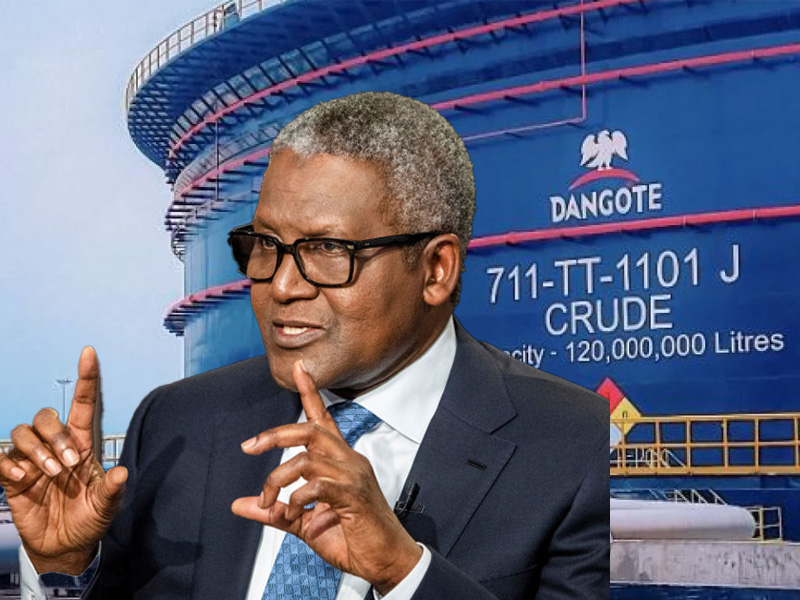
Samuel Chijioke
On Friday evening, at exactly 6:42 p.m., a terse email from Dangote Refinery slipped into the inboxes of fuel marketers across Nigeria. It bore the letterhead of Dangote Petroleum Refinery & Petrochemicals and a title that would send ripples through the country’s fragile energy market: “Suspension of DPRP PMS Naira Sales – Effective 28th September 2025.”
The Dangote Refinery, barely months into its promise of transforming Nigeria’s fuel supply chain, had just announced that it could no longer sell petrol in naira. The reason, according to the statement, was simple but unsettling — the refinery had exhausted its crude-for-naira allocation. “We have been selling petroleum products in excess of our Naira-Crude allocations and, consequently, we are unable to sustain PMS sales in Naira going forward,” the notice explained. Customers with pending naira payments were advised to seek refunds.
The announcement landed like a thunderclap. For many Nigerians, the Dangote Refinery symbolised hope — hope that after decades of import dependence, exploitative middlemen, and erratic supplies, Africa’s largest oil producer would finally refine enough petrol to meet its own needs at stable prices. That dream suddenly looked fragile.
By Saturday morning, whispers of anxiety spread through petrol stations in Lagos, Abuja, Kano, and Port Harcourt. Some marketers warned that with the suspension of naira sales, pump prices could shoot toward ₦1,000 per litre, a nightmare scenario that had briefly materialised back in March 2025 when the Dangote Refinery also halted local-currency transactions. That earlier episode sparked panic buying, queues stretching for miles, and inflation that bled into the cost of food, transport, and basic goods.
In the middle of this renewed crisis, another storm was brewing inside the refinery gates. Labour unions, led by the Petroleum and Natural Gas Senior Staff Association of Nigeria (PENGASSAN), accused the Dangote Refinery of quietly sacking more than 800 Nigerian workers. To them, the suspension of naira sales was only part of a larger pattern of what they called “unjust and insensitive corporate decisions.”
They threatened nationwide solidarity actions unless the matter was resolved. The refinery’s management pushed back, denying mass layoffs and insisting that only a handful of staff had been let go over sabotage allegations.
Still, the contradictions only deepened public unease. For workers, the Dangote Refinery was supposed to mean jobs, stability, and pride in a homegrown industrial giant. For consumers, it was supposed to guarantee affordable petrol. Now both groups were left questioning whether those promises were slipping away.
Economists warn that the implications go beyond the filling stations. If the Dangote Refinery continues to prioritise dollar transactions, the naira could face renewed depreciation pressure in the foreign exchange market. Already battered by inflation, ordinary Nigerians would bear the brunt.
Yet, despite the controversy, hope clings stubbornly to the story of the Dangote Refinery. For all the missteps, Nigerians still want to believe that this massive industrial undertaking can rewrite the country’s fuel narrative. Whether it can steady its footing and return to naira-based sales will determine if it remains a beacon of national pride — or another chapter in the country’s long struggle with energy insecurity.
And so, as the Dangote Refinery braces for Sunday’s suspension, the Dangote Refinery once again finds itself at the heart of a nation’s expectations, fears, and unrelenting demand for relief at the pumps.
